The Jet Lag Cocktail Can Relieve The Stress of Traveling

The Jet Lag Cocktail Feel better and live better with this blend. If you feel like you’re having trouble sleeping, feel weaker than usual, or that you’re constantly thirsty, you might write it off as being due to stress. That could be an error that doesn’t address the actual problem. You could potentially be deprived of essential vitamins, minerals, and antioxidants that the body needs for you to stay well and perform as desired daily. This is especially true if your career requires a lot of time in the air or on the road. The Tolls of Traveling Let’s discuss the impact that traveling can have on you. You’re either in the air or in a car for several hours. You’re going to different climates and dealing with factors that you’re not used to. These factors can place physical stress on the body. Compounded with the emotional stress that comes with delays or other issues, this could wreak havoc on your wellness. This is especially true if you’re new to traveling or have been home for a long time and are just now getting back to visiting different places. The IV Lounge’s “Jet Lag Cocktail” is the solution to these issues. This intravenous drip (IV) can do so much to improve your overall health thanks to what is included in this unique blend. The vitamins and minerals below are an all-star team for your body that will have you feeling like you never left your home. Vitamin C and zinc are the famous “1,2” punch for your immune system that can help you when facing allergies or illness any time of the year. This is crucial if you travel to different climates at random times. Magnesium has been shown in studies to improve quality of sleep both short and long term. You could potentially sleep better in your seat or on a bed that isn’t your own. Selenium is a mineral that can help support your metabolism. If you’re eating less or different foods than you’re accustomed to, then you might not be getting enough which could lead to digestion issues as well as unhealthy weight gain. Copper works with iron to produce red blood cells. It also has a positive role in the maintenance of healthy blood vessels, bones, joints, and nerves. Copper also serves a good backup to Vitamin C and zinc for your immune system. Copper also works as a tag team with Manganese to help assist the respiratory system, process carbohydrates properly, lipid metabolism, and the formation of collagen. It also is involved in antioxidant activities. If any or all of those look like things you could benefit from, then reach out to the IV Lounge to schedule a consultation so we can discuss how you can benefit from the Jet Lag Cocktail. You could be back on top of your game and performing at your normal levels in the gym or meeting room quickly.
The Myers Cocktail Can Be Your IV Multi
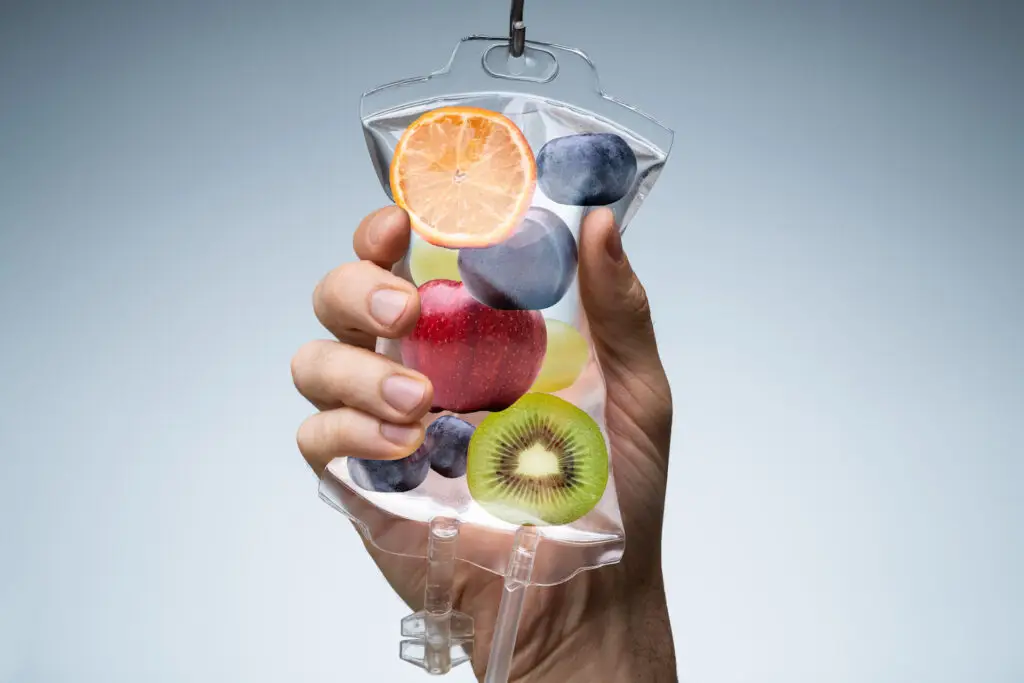
The Myers Cocktail Can Be Your IV Multi This is still relevant and productive over five decades after its introduction. There are certain names that are associated with their craft or profession thanks to that person’s contributions to the field. For the medical community, the name John Myers is the most famous name associated with use of intravenous therapy. The physician from Baltimore, Maryland passed away in 1984 but the “Myers Cocktail” is still proven to help patients see benefits and improving their overall wellness. Symptoms that it has been shown to help include migraines, fatigue, depression, seasonal allergies, and even narcotic withdrawal. The secret to the success all these years is in the ingredients. Magensium – This mineral is important for bone health. 60% of the body’s minerals is found in your skeletal system. It’s important for many of the body’s functions including energy creation, contraction and relaxation of the muscles, and regulation of the nervous system. Magnesium is active in helping you stay active and is involved in the function of the brain. Low levels of magnesium has been associated with depression. Calcium – Calcium has always been associated with bone health but did you know it’s also crucial for heart health as well as contracting of your muscles? Taking high amounts of calcium can also keep your blood pressure low. It’s also a co-factor for many of the enzymes in the body. B-Vitamins – You’ve likely seen a lot of the benefits of B-vitamins already. Brain function, energy production, digestion, eyesight, and nerve function are only a few of the many benefits that are provided by this group of vitamins. The Myers’ Cocktail includes a B-complex that is headlined by B5, B6, and B12. Vitamin C – The immune system’s greatest ally is undoubtedly Vitamin C. The vitamin that also goes by the name Ascorbic Acid is also involved in the production of body tissue, iron absorption, the formation of collagen, healing of wounds, and the maintenance of your body’s cartilage, bones, and teeth. Why the Cocktail is Important You see everything that makes up the Myers Cocktail but why can’t you simply take those vitamins and minerals in supplement form or make sure you eat the proper foods? The answer is within your body – specifically how it absorbs and processes what you take in. The absorption rate of vitamins and minerals ranges from 20-30% when taken in the form of food or supplementation. The absorption rate of intravenous therapy is 100%. That’s because it goes straight into your bloodstream. IV Therapy is like an express lane at the grocery store. It goes straight through without waiting so you can be assured that you’ll use everything that the cocktail provides. So now you know that the Myers Cocktail can help you and why IV Therapy is the best way to consume it, how can you reap the benefits for yourself? The IV Lounge offers it and we’d be glad to serve you. Contact us today to set up an
3 Benefits of Zinc
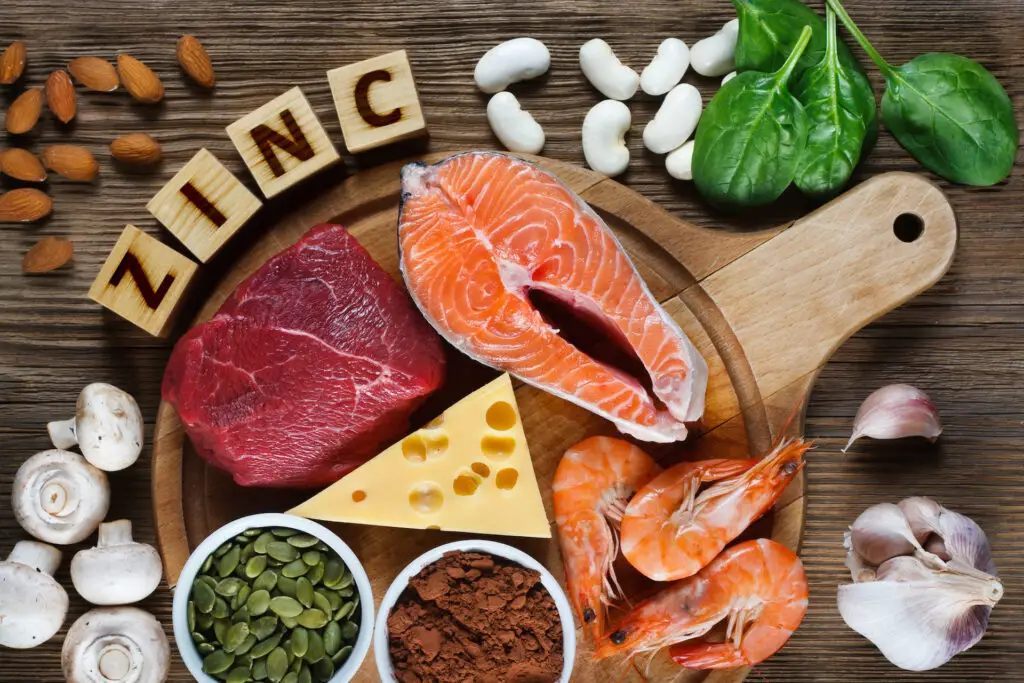
Benefits of Zinc What is it and how can it help you? Most people have heard of zinc in one of two ways. Either it was as a part of a commercial slogan or it’s that other thing you take with Vitamin C when you have a cold. While it does start with the last letter of the alphabet, it has several important roles that can benefit you and your overall health. Once you know all that it does, you’ll have a better understanding of why it’s the trusted sidekick of Vitamin C. It is known as one of the 25 most abundant minerals in the earth’s crust. While it’s that abundant on the ground we walk on, there are actually about two billion people in the world that is deficient in this essential mineral. For children, it’s very important in the growth and development of the entire body. As you will see, its purpose goes on for us far beyond childhood. Immune Support Let’s go ahead and cover this since this is the most popular benefit. While you probably heard that zinc helps you get over being sick from your parents or other older relatives, research has been done to verify it. A 2008 study concluded that zinc reduces oxidative stress which helps combat illness and not just the cold or flu. Zinc supports your immune system against other diseases like atherosclerosis, cancer, brain disorders, and the aging process in general. Zinc can also combat dehydration. A lack of it contributes to the body not being able to absorb water, which could lead to diarrhea and cholera. If your body has sufficient amounts of this mineral, then it will lead to a greater absorption of water and combat these issues. Vision There are high concentrations of zinc present in the eyes. It plays a role in superoxide dismutase which serves as an antioxidant. Deficiency can lead to blurred vision and changes in the retina. Being insufficient for too long can eventually lead to night blindness. It also helps transfer Vitamin A from the liver to the retina and creates melanin which is the pigment that protects your eyes. It can also help slow the macular degeneration process. Brain Health Zinc also serves as a liaison because it’s involved in the communication of brain cells. A lack of it could lead to memory loss and confused thinking also known as “brain fog”. Research has determined that this mineral has anti-depressant properties so having normal amounts regularly can also help with mood support. Sources and Recommended Amounts Recommeded dosages of zinc in adults range from 8-12 mg a day. Zinc is available in many foods you eat. Oysters are the biggest food source but others include red meat, poultry, beans, nuts, grains, seafood, and dairy products. In supplemental form, there are some products that offer both zinc and Vitamin C as a combination and there are others that include zinc only. Another option is in the form of an intravenous drip which provides much more zinc in less time and has been shown to be a more effective way of taking in and using the zinc provided. Everything above shows why zinc is combined with Vitamin C as a part of the IV Lounge’s “Immune Support Cocktail”. That is our intravenous drip that offers one liter of fluid that can rehydrate you in a matter of minutes and offer that wellness support that you can use during that time of year you’re most susceptible to illnesses or ailments. For more information on the Immune Support Cocktail, contact us to schedule a consultation today.
Meet the B Family of Vitamins- What are they and how can they help you?
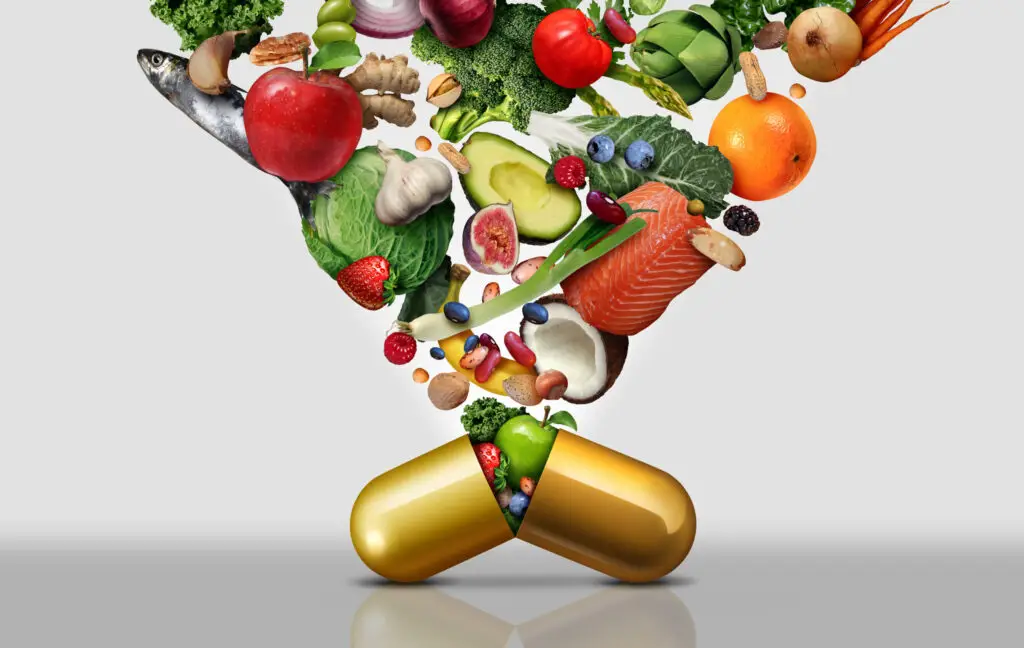
B family Of Vitamins- What Are They and How Can They Help You? When you look at a list of vitamins, you see a letter associated with them like A, C, and K. When you look for the B Vitamins, they’re quite a few and they have numbers next to them. That’s great when it comes to identifying them on a bottle but do you know what each of those vitamins are and how they can be beneficial to you? Sure, you could take a B-complex and have your bases covered but knowing what you’re taking is vital in order to achieve your optimal health and wellness levels. Here’s an overview of each B-vitamin and what they can do for you. B-1 – Thiamine Thiamine can be found in the liver, kidneys, brain, and heart. B1 is responsible for breaking down sugar molecules from food, synthesizing some hormones, creating fatty acids, and creates certain brain chemicals. Recommended daily value (DV) for adults and children over 4 is 1.2 milligrams. B-2 – Riboflavin Riboflavin helps break down fats, plays a role in energy production according to National Institutes of Health, converting tryptophan into niacin, and convert B-6 into a needed coenzyme. 1.3 mg daily is recommended. B-3 – Niacin Your body will take this vitamin and convert it into nicotinamide adenine dinucleotide (NAD). It plays more than 400 enzyme roles in the body. Those enzymes help with the expression of DNA in cells, cell communication, and the cells’ metabolic processes. 16 mg a day is best. B-5 – Pantothenic Acid This vitamin is essential for coenzyme, protein, and fat creation. Red blood cells transport B-5 where necessary for a variety of needs including energy and metabolism production. Your DV for this is 5 mg. B-6 – Pyridoxine This one is an athlete’s best friend for its role in amino acid metabolism, immune support, brain development, and the breakdown of carbohydrates and fats. 1.7 mg a day is an optimal amount. B-7 – Biotin Biotin plays a role in the breakdown of the macronutrients (protein, carbs, and fats) in the food you eat every day. It’s also involved in DNA regulation and cell communication. Suggested intake daily is 30 micrograms (mcg). B-9 – Folate The natural version of this vitamin is known as folate. In synthetic form, you know it as folic acid. The metabolism of amino acids and vitamins are thanks to the efforts of B-9. It also impacts cell division and DNA replication. DV recommendations are in the range of 400 mcg. B-12 While the team on the field in its entirety wins the game, there is always an MVP. B-12 could be the MVP of the B-complex. The body uses this vitamin for red blood cell production, DNA synthesis, detoxification, overall function of the brain, and is also involved in fat and protein metabolism which can impact your energy levels. The optimal suggested amount is 2,500 mg. However, you need to take it in from outside sources to have the amount your body needs and making sure you have that absorbed is key in how well it can help you. This is especially true for people that follow a vegan nutrition lifestyle. Fortunately, the IV Lounge offers B-12 intramuscular shots in the form of Methylcobalamin. This ensures that you have an absorption rate of 100% which means your body will maximize the use of this important vitamin. If your energy is low, you suffer from brain fog, or feel that your body needs assistance with detoxification, B-12 shots or IV therapy with our B-Complex may be your solution. The fact is IV therapy is a better solution than oral options. If you’re in need of these vitamins, make sure you get the best source and are taking in the most efficacious manner so it will last longer. Contact us to book a consultation for more information and find out if this can help you.
Vitamin C: Your Immune System’s Secret Weapon
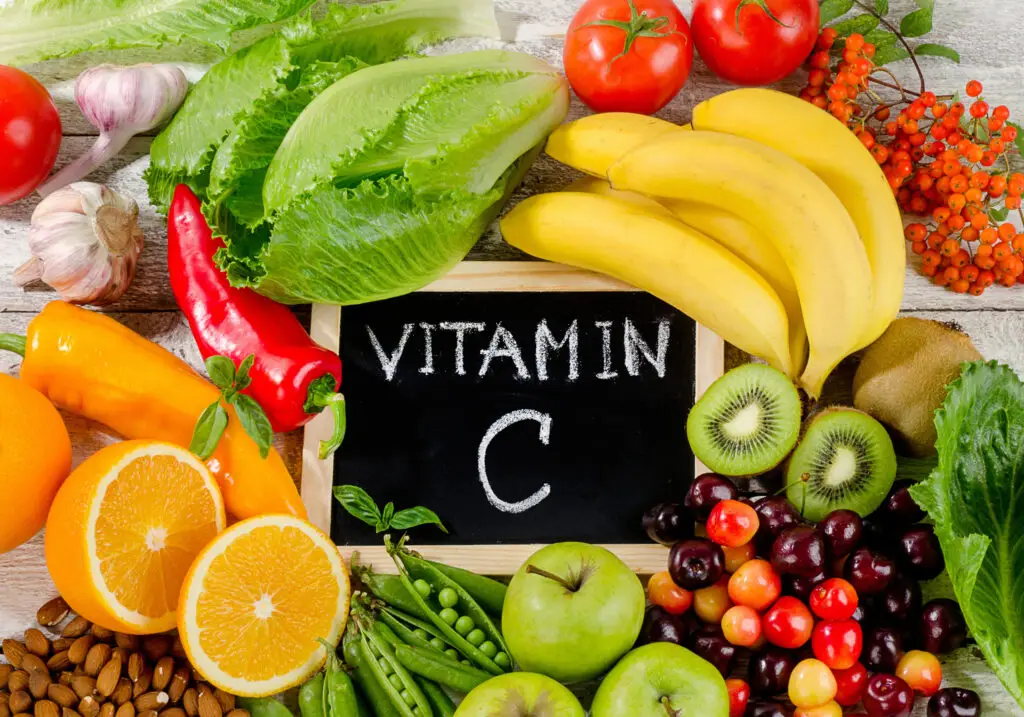
Your Immune System’s Secret Weapon This one vitamin can provide you with a big benefit. Now more than ever, people are viewing health as more than one’s athletic ability or fitness levels. Wellness and feeling healthy has become a top priority for many people. While performing an exercise routine, taking a multivitamin, and eating more nutritious food are great steps on the road to improved health, there is one small step that you can take which can become a giant leap. The small step focuses on your immune system. The immune system’s function is to protect your body from outside forces that could make it weaker and cause illnesses like bacteria, germs, viruses and other pathogens that would be considered “non-self”. While this is a powerful system within your body, it does need support and that can come from Vitamin C. Focusing on Vitamin C specifically can be a major game changer when it comes to your immune system. Vitamin C, or ascorbic acid, is an essential micronutrient that is mandatory for normal development. Since it’s water-soluble, excess amounts can leave the body through your urine. “So it’s one vitamin on that list on the back of the multi that I already take. Why do I need more?” Good question. Vitamin C serves as a great ally for your immune system which means it will support that system in helping you stay well or overcoming an illness faster than if you weren’t taking it. A study conducted by Anitra Carr and Silvia Maggini confirms this. “Vitamin C contributes to immune defense by supporting various cellular functions of both the innate and adaptive immune system. Vitamin C supports epithelial barrier function against pathogens and promotes the oxidant scavenging activity of the skin, thereby potentially protecting against environmental oxidative stress.” If your body doesn’t have enough Vitamin C, then it will become weaker and more susceptible to being defeated by those “non-self” forces. Once you’ve become ill or infected, then the toll becomes even greater because it will enhance inflammation and impact your metabolic response. So the need for Vitamin C then becomes even greater because the normal amount that you would take if you are well wouldn’t be enough to both support the immune system and combat the ailment you’re dealing with. The good news is that the previously mentioned study shows that Vitamin C can enhance various immune cell functions to not only help prevent you from catching a respiratory or systemic issues, but also treat your immune cells should you be impacted so that you can recover faster than if you weren’t to supplement with the micronutrient. Sources of Vitamin C Most people have associated Vitamin C with the orange for decades but vegetables like broccoli, spinach, and Brussel sprouts are among the best sources that naturally provide your “C” for you. Fruits like oranges or strawberries are good choices as well. You can also take Vitamin C in supplemental form. Most versions of this are offered in amounts as high as 1 gram per serving. Vitamin C is even offered in the form of intravenous therapy which was determined to help with the decrease of the side effects of cancer treatment by a study in 2018. The advantage of the IV option is that the absorption rate is 100% which can’t be guaranteed if you choose to go with pills, which could have an absorption rate of 25%. General health recommendations suggest taking 100-200 mg of Vitamin C daily through diet or supplement form but more would be required should you get sick or suffer from infections. Should you be interested in considering Intravenous Vitamin C therapy for yourself, reach out to the IV Lounge to book a consultation today.
The Mother Antioxidant: Glutathione
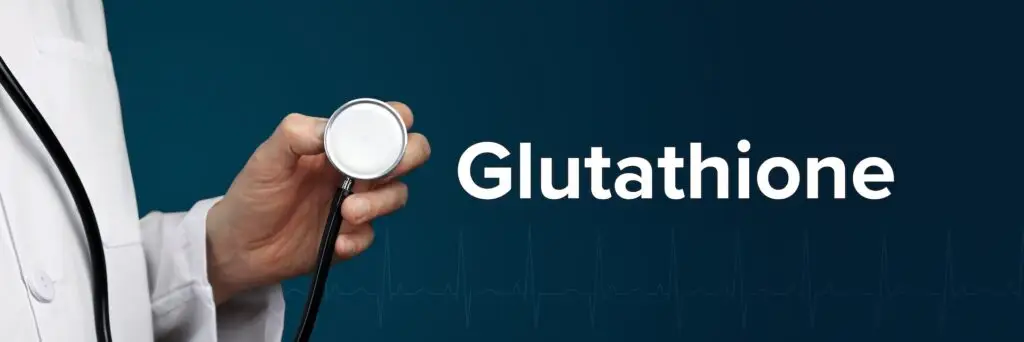
The Mother Antioxidant:Glutathione GLUTATHIONE: It’s an antioxidant and probably the most important molecule you need to stay healthy and prevent disease — yet you’ve probably never heard of it. It’s the secret to prevent aging, cancer, heart disease, dementia, and more, and necessary to treat everything from autism to Alzheimer’s disease. There are more than 89,000 medical articles about it — but your doctor doesn’t know how to address the epidemic deficiency of this critical life-giving molecule … What is it? I’m talking about the mother of all antioxidants, the master detoxifier and maestro of the immune system: GLUTATHIONE (pronounced “gloota-thigh-own”).The good news is that your body produces its own glutathione. The bad news is that strenuous exercise routine, poor diet, pollution, toxins, medications, stress, trauma, aging, infections, and radiation all deplete your glutathione. This leaves you susceptible to unrestrained cell disintegration from oxidative stress, free radicals, infections and cancer. And your liver gets overloaded and damaged, making it unable to do its job of detoxification. Glutathione deficiency is found in nearly all very ill patients. These include people with chronic fatigue syndrome, heart disease, cancer, chronic infections, autoimmune diseases, diabetes, autism, Alzheimer’s, Parkinson’s, arthritis, asthma, kidney problems, liver disease and more. Our ability to produce and maintain a high level of glutathione is critical to recovery from nearly all chronic illness — and to preventing disease and maintaining optimal health and performance. The authors of those 76,000 medical articles on glutathione mentioned earlier have found the same thing! What is Glutathione? Glutathione is a very simple molecule that is produced naturally all the time in your body. It is a combination of three simple building blocks of protein or amino acids — cysteine, glycine and glutamine according to Very Well Health. The secret of its power is the sulfur (SH) chemical groups it contains. Sulfur is a sticky, smelly molecule. It acts like fly paper and all the bad things in the body stick onto it, including free radicals and toxins like mercury and other heavy metals. Normally glutathione is recycled in the body — except when the toxic load becomes too great. And that explains why we are in such trouble The Importance of Glutathione in Protecting Against Chronic Illness. Glutathione is critical for one simple reason: It recycles antioxidants. You see, dealing with free radicals is like handing off a hot potato. They get passed around from vitamin C to vitamin E to lipoic acid and then finally to glutathione which cools off the free radicals and recycles other antioxidants. After this happens, the body can “reduce” or regenerate another protective glutathione molecule and we are back in business. However, problems occur when we are overwhelmed with too much oxidative stress or too many toxins. Then the glutathione becomes depleted and we can no longer protect ourselves against free radicals, infections, or cancer and we can’t get rid of toxins. This leads to further sickness and soon we are in the downward spiral of chronic illness. But that’s not all. Glutathione is also critical in helping your immune system do its job of fighting infections and preventing cancer. That’s why studies show that it can help in the treatment of AIDS. Glutathione is also the most critical and integral part of your detoxification system. All the toxins stick onto glutathione, which then carries them into the bile and the stool — and out of your body. And lastly, it also helps us reach peak mental and physical function. Research has shown that raised glutathione levels decrease muscle damage, reduce recovery time, increase strength and endurance and shift metabolism from fat production to muscle development. One study in particular on elite Nordic skiers showed a 6% performance improvement after just 4 weekly treatments with glutathione. If you are sick or old or are just not in peak shape, you likely have glutathione deficiency. In fact, the top British medical journal, the Lancet, found the highest glutathione levels in healthy young people, lower levels in healthy elderly, lower still in sick elderly and the lowest of all in the hospitalized elderly. Keeping yourself healthy, boosting your performance, preventing disease and aging well depends on keeping your glutathione levels high. Glutathione is so important because it is responsible for keeping so many of the keys to Ultra Wellness optimized. It is critical for immune function and controlling inflammation. It is the master detoxifier and the body’s main antioxidant, protecting our cells and making our energy metabolism run well. In addition to its many recognized biological functions, glutathione has also been associated with skin lightening ability. Glutathione inhibits the melanin production therefore reduces the concentration of pigmentation. As a result, it lightens and evens the skin tone.